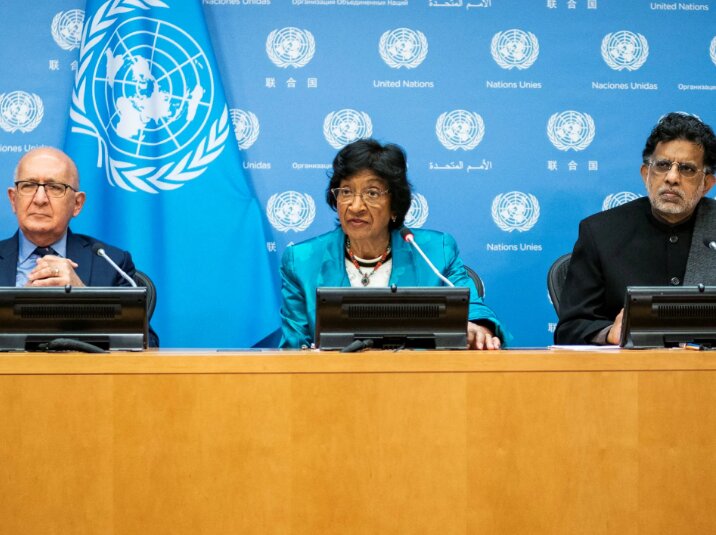Sanctions, delegitimization, and resignations: The end of UN oversight in occupied Palestine

TEHRAN- The recent resignation of all members of the United Nations Commission of Inquiry on the Occupied Palestinian Territory epitomizes the fraught intersection of human rights accountability, geopolitical confrontation, and organizational challenges within the UN system.
A closer look reveals a backdrop rife with growing political hostility, credibility issues, and a persistent external campaign to undermine and delegitimize the commission's work, despite the official justifications for the departure of Navi Pillay, Chris Sidoti, and Miloon Kothari, which focus on age, health, and administrative renewal.
Personal reasons mask a politicized environment
On the surface, Pillay’s resignation at age 83, citing health issues and commitments elsewhere, is not surprising considering the arduous nature of working in an inquiry with the UN.
Sidoti's rather hasty resignation immediately following her own retirement, not to mention Kothari's tacit approval of the situation, indicates a likely coordinated resignation for the recognition of all operational barriers and exterior hostility. These factors are held in the context of an accelerated political milieu that has an entirely different and growing impact on the ability of the commission to achieve its stated aims.
Commission’s critical reports and resulting backlash
Since its inception in 2021, the commission has produced periodic reports overwhelmingly critical of Israeli policies in the West Bank and Gaza—explaining the state of grave human rights abuses, including appropriation of natural resources and disproportionate military conduct. These findings generated fierce backlash from Israel, the US, and certain Jewish advocacy groups, who condemned the commission as biased and accused it of antisemitism, particularly after Kothari’s controversial remarks invoking antisemitic tropes and challenging Israel’s UN membership.
The accusations of antisemitism increased pressure on the commission's mandate and internal cohesion, even though Pillay dismissed them as diversionary.
US intensifies political pressure with sanctions
The resignations occur amid a broader Trump administration’s campaign targeting international legal scrutiny of Israel. Notably, the US has imposed sanctions on ICC Prosecutor Karim Khan for pursuing war crimes investigations involving Israeli leaders, and sanctioned Francesca Albanese, the UN Special Rapporteur on Palestinian human rights, for her vocal advocacy of ICC prosecutions and corporate accountability related to Israel’s occupation.
These unprecedented sanctions are, in essence, a sharp hardening of the US policy to shield Israel from international judicial processes by directly intimidating the UN experts and inhibiting their work.
The whole situation reflects an unacceptable interference that clashes with the independence and efficacy of the investigation that is supposed to be carried out under the auspices of the United Nations. The resigning commissioners were additionally constrained with diplomatic sclerosis with Israel refusing to grant them visas or to cooperate with the inquiries. This attitude creates an untenable professional environment for unbiased inquiry.
Hence, the act of collectively resigning can be read not only as an individual choice but also as a reflection of systematic challenges posed by orchestrated state-level resistance to international human rights mechanisms.
The future of UN oversight depends on political will and protection
Looking forward, the Human Rights Council’s invitation for new nominations before August 31 underscores an institutional determination to continue oversight despite growing adversity. However, for successor commissioners to succeed, they will require stronger political support, protection from undue influence, and mechanisms ensuring operational autonomy.
The resignation of the UN fact-finding commission members is emblematic of a deeper crisis where age and personal considerations intersect with an intensifying geopolitical contest over Israel’s accountability.
The coordinated pressures from Israel and the US, manifest in diplomatic obstruction and punitive sanctions, reveal an attempt to stifle international scrutiny in the Israeli-Palestinian conflict.
This episode raises urgent questions about the resilience of international human rights institutions when confronted by realpolitik and challenges the global community to reaffirm its commitment to safeguarding independent mechanisms of justice and accountability in highly sensitive conflict zones.
Leave a Comment